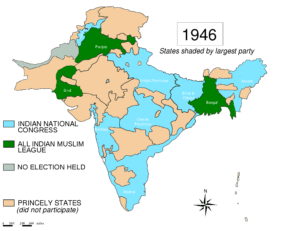Table of Contents
What is Ecocide? Why do many countries want to criminalize ecocide? What is India’s take on it?
Introduction
The term “ecocide” is oftentimes used in the news and has become a major issue globally. It refers to extensive and severe environmental damage or destruction caused by human activities. Many countries and agencies are pushing to criminalize environmental destruction and recognize ecocide as an international crime. This article explores the significance, features, objectives, effects, pros and cons of criminalizing ecocide, and discusses India’s stance on the issue.
Features of Ecocide
Ecocide is derived from Greek and Latin, translating to ‘killing one’s home’ or ‘environment’. It refers to actions or processes that cause widespread harm to ecosystems, biodiversity, and the natural environment on a scale that significantly disrupts the balance of nature and poses a threat to life on Earth. While not universally recognized as a legal concept, ecocide seeks to criminalize acts that cause severe and lasting harm to the environment, similar to crimes against humanity and genocide under international law.
Objectives and Effects of Criminalizing Ecocide
The objective of criminalizing ecocide is to hold individuals, corporations, and governments accountable for actions leading to large-scale environmental destruction. By recognizing ecocide as an international crime, the hope is to deter and punish those responsible for severe environmental harm. Criminalizing ecocide can also raise awareness about the importance of environmental protection and conservation.
The effects of criminalizing ecocide include the potential to reduce environmental destruction by imposing legal consequences on perpetrators. It can also help in achieving global environmental goals by providing a legal framework for addressing ecological damage. Additionally, criminalizing ecocide may facilitate international cooperation in addressing cross-border environmental issues.
Pros and Cons of Criminalizing Ecocide
Pros:
- Accountability: Recognizing ecocide as a crime would hold individuals, corporations, and governments accountable for their actions that cause severe environmental damage.
- Deterrence: Criminalizing ecocide could act as a deterrent, discouraging activities that harm the environment on a large scale.
- Global Cooperation: By establishing ecocide as an international crime, countries can work together to address environmental issues that transcend national borders.
- Raising Awareness: Criminalizing ecocide can raise public awareness about the importance of protecting the environment and promote sustainable practices.
Cons:
- Legal Challenges: Establishing a clear and internationally recognized definition of ecocide as a crime can be complex and challenging. Consensus on the language and scope of the definition is necessary.
- Enforcement Issues: Even if ecocide is defined as a crime, identifying responsible parties, jurisdictional issues, and practical difficulties in investigating and prosecuting cases can pose challenges.
- Political Interests: Powerful economic and political actors may resist efforts to criminalize ecocide if their interests are threatened. Industries contributing to environmental destruction may have influence and resources to protect their interests.
- Scientific Uncertainty: Scientific uncertainty about the long-term ecological impacts of certain activities can complicate efforts to establish ecocide as a crime.
Fun Fact: Ecocide gained prominence as a term in the late 20th century and was used to describe the large-scale destruction of ecosystems, often linked to activities like deforestation, oil spills, and habitat destruction.
India’s Take on Ecocide
India, like many other countries, has not explicitly defined its stance on ecocide as a legally recognized international crime. It has not adopted the term “ecocide” in its legal framework and has not expressed an official position on the proposal to criminalize ecocide at the international level. However, as a member of the international community, India is committed to addressing environmental issues and concerns through various international agreements and conventions. These include agreements related to climate change, biodiversity conservation, and sustainable development.
In conclusion, the concept of ecocide seeks to acknowledge and potentially criminalize acts that cause severe and lasting harm to the environment. Efforts to recognize ecocide as an international crime are ongoing, with proponents advocating for its inclusion in international law. However, challenges such as establishing a clear legal definition, enforcement mechanisms, and overcoming political and economic interests exist. India, while not having an official stance on ecocide, is committed to addressing environmental concerns through international agreements.
Mutiple Choice Questions
1. What is the definition of Ecocide?
a) Ecocide refers to actions or processes that cause harm to ecosystems, biodiversity, and the natural environment.
b) Ecocide is a term used to describe the killing of one’s home or environment.
c) Ecocide is the destruction of the environment on a scale that disrupts the balance of nature.
d) Ecocide is a universally recognized legal concept that criminalizes environmental destruction.
Explanation: The correct answer is c. Ecocide is derived from Greek and Latin, and translates to ‘killing one’s home’ or ‘environment’. It refers to actions or processes that cause widespread harm to ecosystems, biodiversity, and the natural environment on a scale that significantly disrupts the balance of nature and poses a threat to life on Earth.
2. Why do many countries want to criminalize ecocide?
a) To hold individuals, corporations, and governments accountable for large-scale environmental destruction.
b) To punish individuals who harm the environment.
c) To prevent the destruction of ecosystems and biodiversity.
d) To promote sustainability and conservation efforts.
Explanation: The correct answer is a. Many countries want to criminalize ecocide to hold individuals, corporations, and governments accountable for actions that lead to large-scale environmental destruction.
3. What is India’s stance on ecocide?
a) India has officially adopted ecocide as an international crime within its legal framework.
b) India has signed and ratified the Rome Statute of the International Criminal Court.
c) India has expressed support for the criminalization of ecocide at the international level.
d) India has not officially adopted the term “ecocide” as a distinct international crime, but is committed to addressing environmental issues through international agreements and conventions.
Explanation: The correct answer is d. India has not officially adopted the term “ecocide” as a distinct international crime within its legal framework, but is committed to addressing environmental issues through various international agreements and conventions.
4. How many countries currently consider ecocide as a crime?
a) 1
b) 11
c) 27
d) 5
Explanation: The correct answer is b. According to the Thomson Reuters Foundation, ecocide is currently a crime in 11 countries.
5. What are some challenges associated with addressing ecocide?
a) Legal definition and recognition, enforcement mechanisms, and political and economic interests.
b) Proof and attribution, jurisdictional issues, and accountability of corporations.
c) Indigenous rights and land disputes, political will and public awareness, and scientific uncertainty.
d) International cooperation, legal definition and recognition, and enforcement mechanisms.
Explanation: The correct answer is a. Some of the challenges associated with addressing ecocide include establishing a clear and internationally recognized definition, establishing effective enforcement mechanisms, and facing resistance from powerful economic and political actors.
Note: These questions and explanations are based on the provided information. It is important to verify the accuracy and relevance of the information before using it for exams or assessments.
Brief Summary | UPSC – IAS
The article discusses the concept of ecocide, which refers to extensive and severe environmental damage or destruction caused by human activities. Efforts are being made by activists and legal experts to criminalize ecocide and hold individuals, corporations, and governments accountable for environmental destruction. The term gained prominence in the late 20th century and has been proposed as the fifth international crime under the Rome Statute of the International Criminal Court. However, there are challenges in addressing ecocide, including defining it as a crime, establishing enforcement mechanisms, and overcoming political and economic interests. India has not officially adopted ecocide as a distinct crime but is committed to addressing environmental issues through international agreements.


